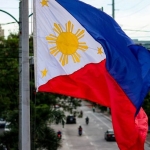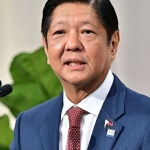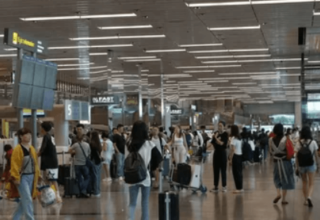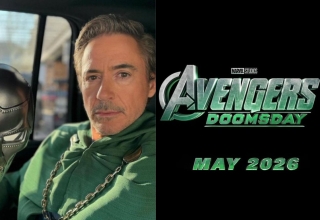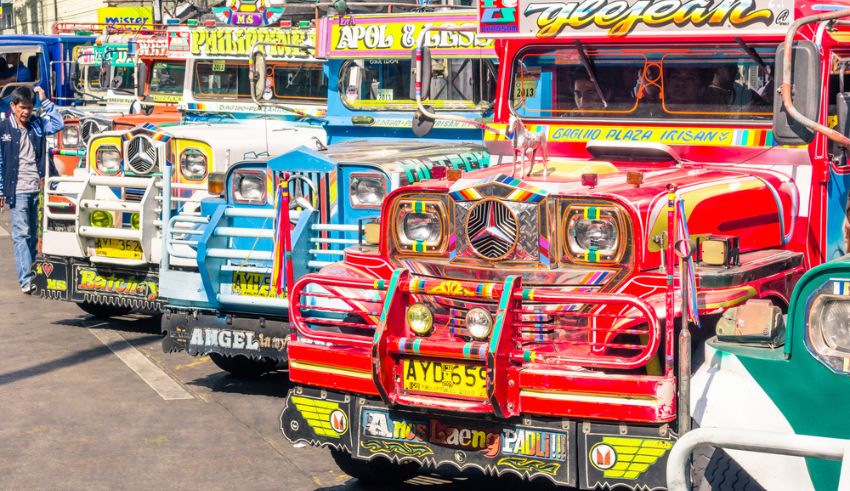
The PUV Modernization Program, launched by the Philippine government in 2017, aims to replace the old and polluting jeepneys, the iconic and popular public transport vehicles in the country, with new and eco-friendly ones. However, the program has been met with resistance and criticism from jeepney drivers, operators, and commuters, who fear that the program will phase out the traditional and locally made jeepneys, and favor the imported and expensive ones, especially from China.
The Role and Impact of China
China plays a significant role and impact in the PUV Modernization Program, as it is one of the main sources and suppliers of the modern jeepneys that the program requires. According to the Department of Transportation (DOTr), as of January 2024, there are 54 modern PUV models that are compliant with the Philippine National Standards, and 24 of them are made in China. Some of the Chinese brands that have entered the Philippine market are King Long, Foton, Dongfeng, and Higer.
The Chinese-made modern jeepneys have some advantages and disadvantages for the Philippine transport sector, such as:
Advantages:
- They are cheaper and more available than other foreign-made modern jeepneys, such as those from Japan or Korea, which makes them more affordable and accessible for the local transport cooperatives and operators.
- They are equipped with advanced features and technologies, such as GPS, CCTV, dashboard cameras, Wi-Fi, air-conditioning, and automatic fare collection systems, which enhance the safety, comfort, and convenience of the drivers and passengers.
- They are compliant with the environmental and emission standards, such as Euro 4 or electric, which reduce the air pollution and greenhouse gas emissions from the transport sector.
Disadvantages:
- They are still more expensive and less available than the traditional and locally made jeepneys, which makes them unaffordable and inaccessible for many jeepney drivers and operators, who earn low and irregular incomes, and who face high and uncertain costs of maintenance and operation.
- They are not compatible or adaptable with the local road and traffic conditions, such as the narrow and congested streets, the frequent and unpredictable stops, and the diverse and demanding passengers, which affect the performance and efficiency of the modern jeepneys.
- They are not reflective or representative of the local culture and identity, such as the colorful and creative designs, the personalized and customized decorations, and the historical and social significance of the traditional jeepneys, which are considered as a symbol and a heritage of the Filipino people.
Keep Reading
The Challenges and Opportunities for the Future
The PUV Modernization Program, and the role and impact of China in it, pose some challenges and opportunities for the future of the Filipino jeepneys, such as:
Challenges:
- How to balance the economic and environmental benefits of the modern jeepneys with the social and cultural costs of the traditional jeepneys, and to ensure that the program is inclusive and equitable for all the stakeholders, especially the jeepney drivers and commuters, who are the most affected and vulnerable by the program.
- How to address the legal and ethical issues of the program, such as the transparency and accountability of the procurement and implementation processes, the protection and respect of the intellectual property and labor rights, and the prevention and regulation of the corruption and collusion, that may arise from the involvement of China and other foreign actors in the program.
- How to manage the political and diplomatic implications of the program, such as the alignment and divergence of the interests and values of the Philippines and China, the influence and interference of China and other foreign actors in the domestic affairs of the Philippines, and the cooperation and competition of the Philippines and China in the regional and international arena, that may result from the program.
Opportunities:
- How to leverage the economic and environmental advantages of the modern jeepneys to improve the quality and sustainability of the public transport system in the Philippines, and to provide better and greener mobility and accessibility for the Filipino people, especially the poor and marginalized sectors of the society.
- How to utilize the advanced features and technologies of the modern jeepneys to enhance the safety and comfort of the drivers and passengers, and to create more opportunities and innovations for the transport sector, such as digital and smart solutions, data and analytics, and online and mobile platforms.
- How to preserve and promote the local culture and identity of the traditional jeepneys, and to integrate them with the modern jeepneys, and to foster a sense of pride and ownership among the Filipino people, especially the jeepney drivers and operators, who are the custodians and guardians of the jeepney legacy.
The PUV Modernization Program is a controversial and complex issue that affects the future of the Filipino jeepneys, and the role and impact of China in it is a crucial and contentious factor that influences the outcome of the program. The program has some pros and cons, and some challenges and opportunities, for the Philippine transport sector and society, and it requires a careful and comprehensive analysis and assessment, and a collaborative and consultative approach and action, from all the stakeholders and actors involved, to ensure that the program is fair and beneficial for all, and that the jeepneys remain as the king of the road in the Philippines.
